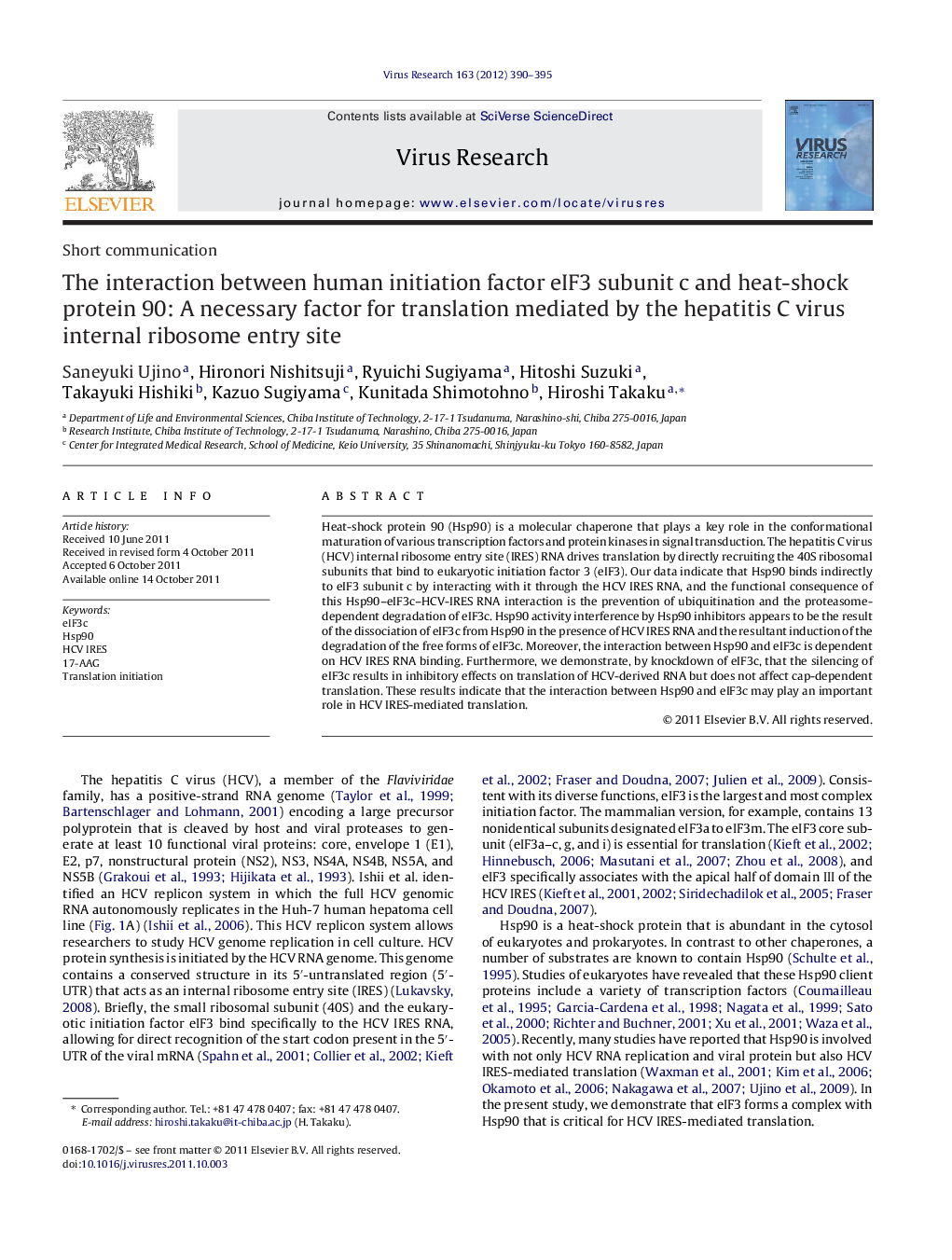| Article ID | Journal | Published Year | Pages | File Type |
|---|---|---|---|---|
| 6143326 | Virus Research | 2012 | 6 Pages |
Abstract
Heat-shock protein 90 (Hsp90) is a molecular chaperone that plays a key role in the conformational maturation of various transcription factors and protein kinases in signal transduction. The hepatitis C virus (HCV) internal ribosome entry site (IRES) RNA drives translation by directly recruiting the 40S ribosomal subunits that bind to eukaryotic initiation factor 3 (eIF3). Our data indicate that Hsp90 binds indirectly to eIF3 subunit c by interacting with it through the HCV IRES RNA, and the functional consequence of this Hsp90-eIF3c-HCV-IRES RNA interaction is the prevention of ubiquitination and the proteasome-dependent degradation of eIF3c. Hsp90 activity interference by Hsp90 inhibitors appears to be the result of the dissociation of eIF3c from Hsp90 in the presence of HCV IRES RNA and the resultant induction of the degradation of the free forms of eIF3c. Moreover, the interaction between Hsp90 and eIF3c is dependent on HCV IRES RNA binding. Furthermore, we demonstrate, by knockdown of eIF3c, that the silencing of eIF3c results in inhibitory effects on translation of HCV-derived RNA but does not affect cap-dependent translation. These results indicate that the interaction between Hsp90 and eIF3c may play an important role in HCV IRES-mediated translation.
Keywords
Related Topics
Life Sciences
Immunology and Microbiology
Virology
Authors
Saneyuki Ujino, Hironori Nishitsuji, Ryuichi Sugiyama, Hitoshi Suzuki, Takayuki Hishiki, Kazuo Sugiyama, Kunitada Shimotohno, Hiroshi Takaku,
